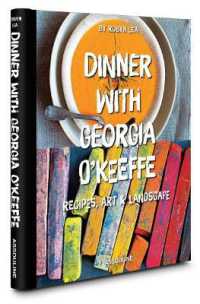Full Description
Drawing on chapters from a selection of authors from the fields of education, philosophy, political science, and sociology this book presents provocations on how citizenship might be experienced, conceptualised, expressed, and practiced in a range of settings.
Comprised of thirteen chapters by a group of international academics, the book engages with the concepts of 'citizenship' and 'political agency', as well as forms and expressions of citizenship, to consider how the practice of citizenship can be extended to move beyond mainstream political discourses. Discussions of decolonisation, race, disability advocacy, sexual health, protest, and democracy examine how citizenship and belonging are enacted in a range of international contexts. In order to explore these issues, the book draws on a range of empirical, theoretical, political, and speculative discussions from a range of perspectives. Throughout, it provides a critique of dominant conceptions of citizenship and explores how citizenship might be re-conceptualised and re-fashioned.
This volume is an essential read for academics, researchers, postgraduate students, policy makers, and teachers interested in reframing citizenship education to enhance a sense of belonging in our uncertain times.
Contents
Part 1. Re-thinking Concepts of Citizenship and Political Education
1. Introduction
2. Political education 'in [adjective] times': Predicating and answering to the epochal
3. Individualism, whiteness and depoliticisation: Reframing neoliberal citizenship education in England as social, inclusive and political using a Butlerian lens
4. The role of agency in the development of citizenship
5. On the possibility of democratic citizenship education and decoloniality in (African) schools
Part 2. Forms and Expressions of Citizenship
6. Between disenfranchisement and polarisation: Mapping youth online and school-related affective assemblages of civic participation
7. produce, reduce, recycle - phonocenes of citizenship
8. 'Protest songs as a language arts medium of citizenship education
Part 3. Extending the Practice of Citizenship
9. The school as a civic institution: Learning and doing politics
10. Phenomenology of sociality and relational accounts of personhood: reinstating the moral status of children with profound and multiple learning difficulties
11. Exploring the limits of youth participation: An ethnography of volunteering by 'vulnerable' youths in the Philippines
12. Critical citizenship after Black Lives Matter: The Case of Decolonising the Curriculum and the Neoliberal University
13. Conclusion








